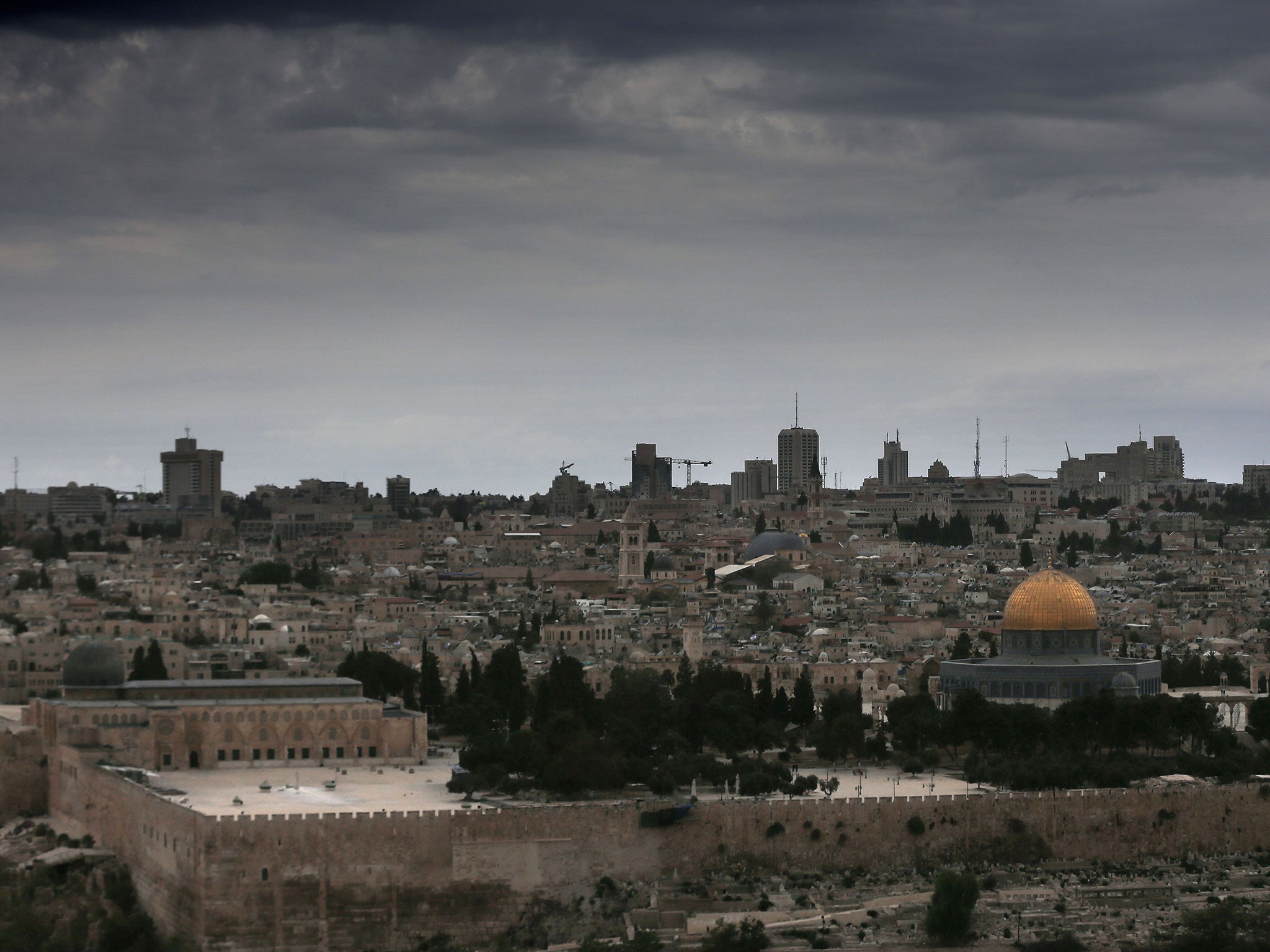Israel violence: Palestinians reject plan to uphold ‘status quo’ with cameras at Jerusalem's al-Aqsa mosque
Leaders fear surveillance project, backed by US, will be used to frame and arrest Muslim worshippers

Your support helps us to tell the story
From reproductive rights to climate change to Big Tech, The Independent is on the ground when the story is developing. Whether it's investigating the financials of Elon Musk's pro-Trump PAC or producing our latest documentary, 'The A Word', which shines a light on the American women fighting for reproductive rights, we know how important it is to parse out the facts from the messaging.
At such a critical moment in US history, we need reporters on the ground. Your donation allows us to keep sending journalists to speak to both sides of the story.
The Independent is trusted by Americans across the entire political spectrum. And unlike many other quality news outlets, we choose not to lock Americans out of our reporting and analysis with paywalls. We believe quality journalism should be available to everyone, paid for by those who can afford it.
Your support makes all the difference.Proposals to place the al-Aqsa mosque compound under constant video surveillance, backed by the US as a measure to calm growing tensions, have been rejected by the Palestinian leadership amid claims footage would be used to frame and arrest Muslim worshippers.
The camera idea, which originated with Jordan’s King Abdullah and a statement by Israeli Prime Minister Benjamin Netanyahu reaffirming that Israel will not make changes at the site known as Haram al-Sharif to Muslims and Temple Mount to Jews, were the main results of diplomacy by US Secretary of State John Kerry.
Mr Kerry’s bid was aimed at stemming violence that erupted early this month amid a widespread Palestinian perception that Israel intends to impose Jewish prayer on the site, which houses Islam’s third holiest shrine, the al-Aqsa mosque.
“Netanyahu wants the video cameras just to track our people and arrest them,” Saeb Erekat, the senior aide to Palestinian President Mahmoud Abbas told the Voice of Palestine radio station. Mr Kerry said the cameras “could really be a game changer in discouraging anybody from disturbing the sanctity” of the site.
But Ahmed Tibi, an Arab member of Israel’s parliament told a press conference that the US Secretary was missing the point by not addressing Israel’s occupation of East Jerusalem and the West Bank. “If Kerry wants to calm the situation he should treat the disease, not the symptoms. The Palestinians need to be treated as equal human beings with freedom of movement and free access to al-Aqsa,” he said.
Speaking to cabinet ministers, Mr Netanyahu praised the idea of installing the cameras, saying this would enable Israel to refute allegations that it is making changes at the site. His spokesman, Mark Regev, said: “We have an interest in the cameras because they will show there is no change in the status quo. Moreover, when there are provocations the cameras will show where they came from and allow for them to be dealt with quickly and effectively. The cameras will show to be false all the nefarious statements about Israeli actions on the Temple Mount, such as that Israel is out to destroy the mosque.”
But Hanan Ashrawi, the PLO spokeswoman, predicted that Israel would misuse the footage. “This won’t do anything other than give Israel more control. We don’t trust Israel with more information. We think it doctors information. This is not a solution.”
I appreciate the efforts of the PM to calm the situation but at the end of the day nothing will prevent Jews praying on the Temple Mount, not even the cameras
In a statement made at Mr Kerry’s behest on Saturday night, Mr Netanyahu said that Israel would continue its “long-standing policy” that Muslims could pray at the site, while non-Muslims could only visit it. That elicited a positive response from King Abdullah, who termed this “a worthy commitment provided it will be implemented on the ground”. But Palestinian Foreign Minister Riyadh Malki said Mr Netanyahu’s statements cannot be trusted and that only arrangements enshrined in a security council resolution would be of any value.
Yinon Magal, an Israeli MP from the Jewish Home party, said installing cameras at the behest of the Jordanians would not stop Jews from being able to pray at the site. “I appreciate the efforts of the prime minister to calm the situation but at the end of the day nothing will prevent Jews praying on the Temple Mount, not even the cameras,” he said.
In fresh violence, Israeli security forces shot dead a Palestinian woman whom police said drew a knife on them in the West Bank city of Hebron. In another incident, a Palestinian stabbed and wounded an Israeli near a Jewish settlement in the West Bank, the Israeli army said. The wounded man reportedly fired at the assailant and the Palestinian health ministry later said a Palestinian was hospitalised after being shot by an Israeli.
Join our commenting forum
Join thought-provoking conversations, follow other Independent readers and see their replies
Comments